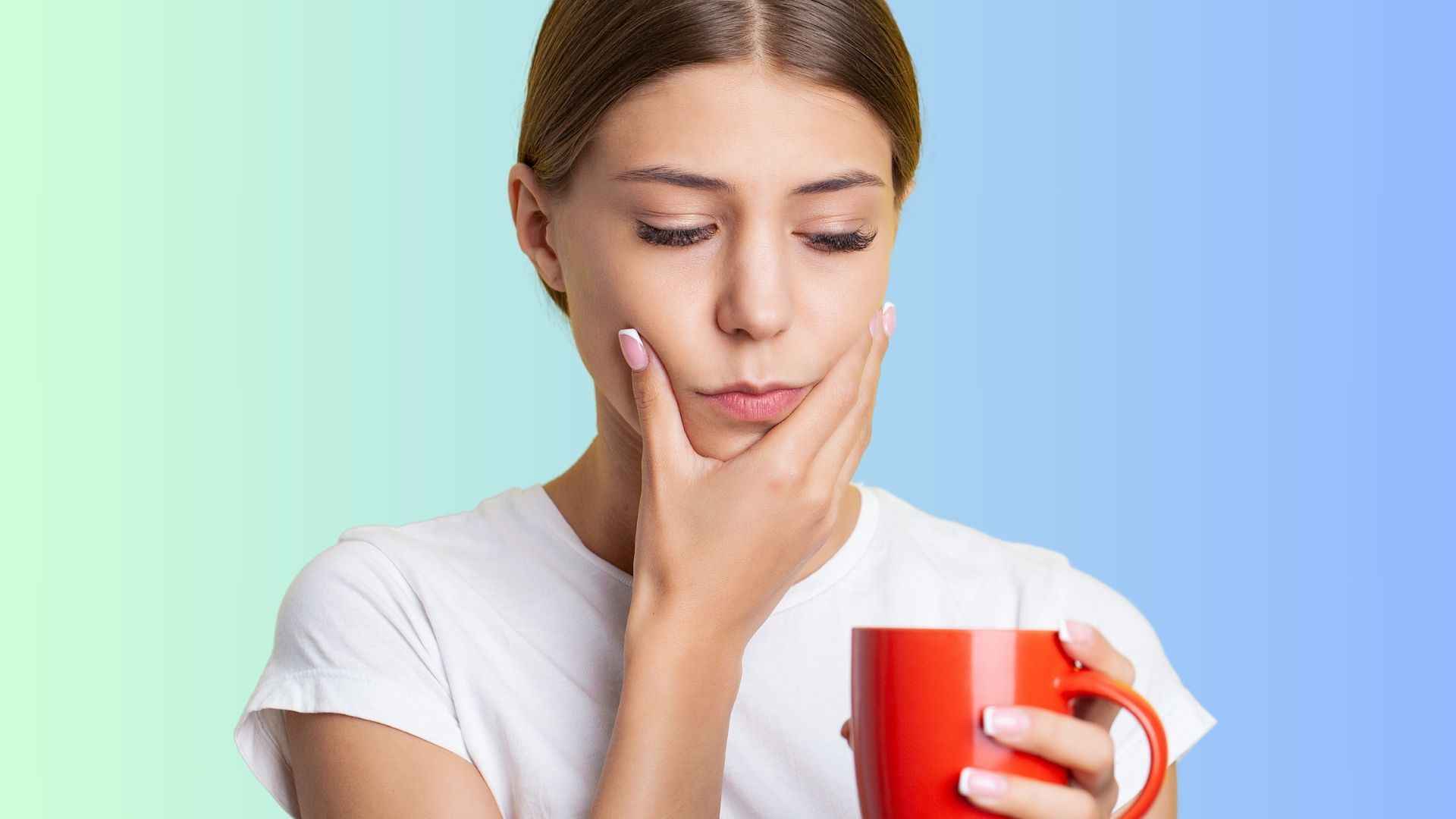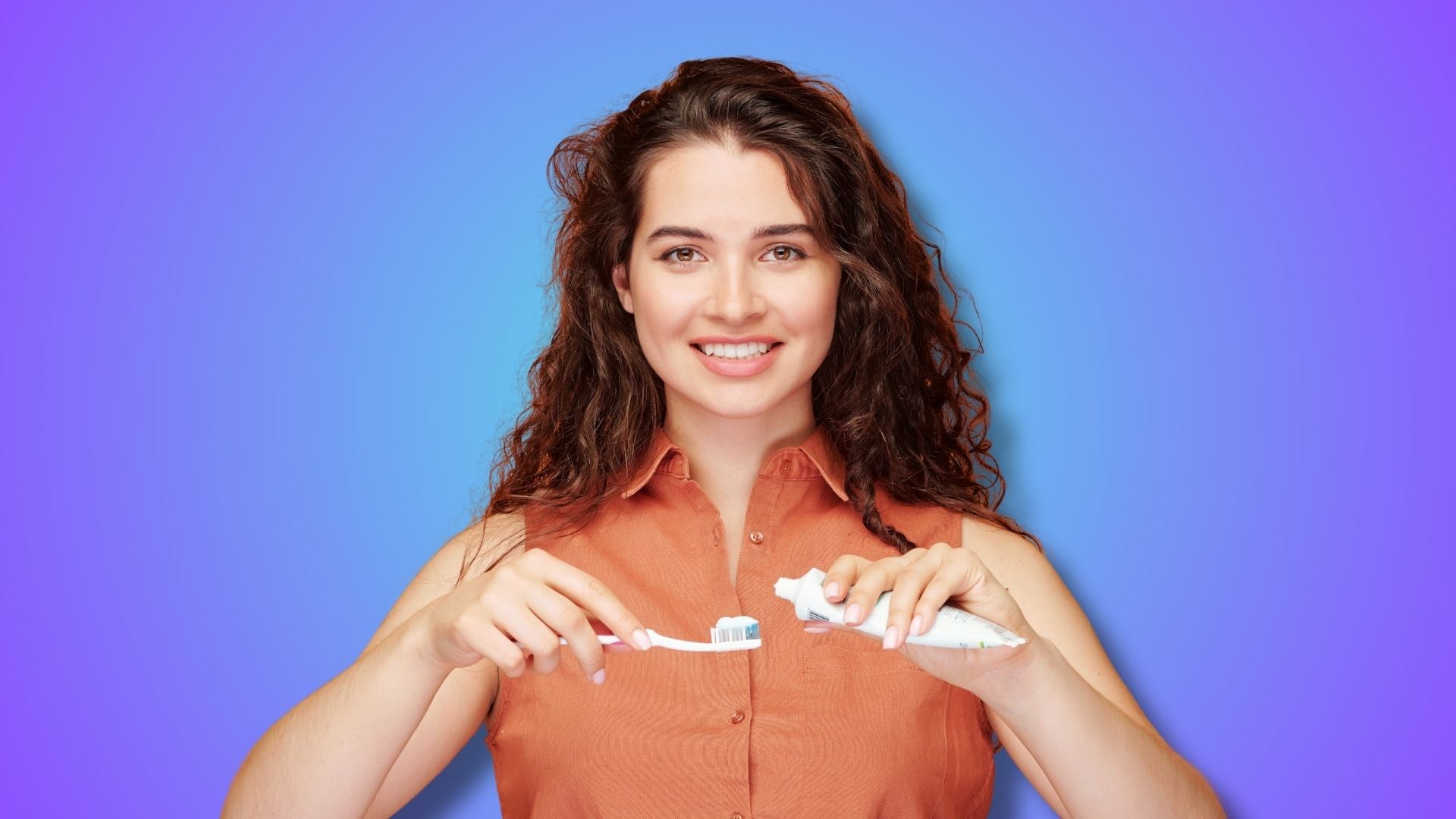Is Tea Good for Teeth?
Yes, tea is good for teeth. In fact, tea, particularly green tea, can be beneficial for your teeth and overall oral health when consumed in moderation.
Green tea is rich in antioxidants and contains natural compounds called catechins, which have antibacterial properties. These catechins help fight the bacteria in your mouth, particularly Streptococcus mutans, which is responsible for causing tooth decay and cavities.
By reducing the growth of these harmful bacteria, green tea helps protect your teeth from decay. Additionally, green tea's anti-inflammatory properties can support gum health, reducing the risk of gum disease, a common condition that can affect the support structure of your teeth.
Additionally, green tea can contribute to fresher breath as its antibacterial properties also target the compounds that cause bad breath. Plus, unlike many other beverages, green tea does not erode tooth enamel significantly, making it a safer choice for your teeth.
In this article, I'll explain everything you need to know about whether tea is good for teeth and all of the key benefits of green tea consumption.
Is tea bad for your teeth?

No, tea is not bad for your teeth in moderation, but it's important to be aware of how its consumption can affect your dental health.
The tannins present in tea, especially darker varieties like black tea, can lead to teeth staining. These natural compounds bind to the enamel, the protective outer layer of your teeth, causing discoloration over time.
Additionally, tea's acidity, particularly pronounced in fruit-flavored teas, can contribute to enamel erosion. This process weakens your teeth, making them more prone to decay and sensitivity.
However, it's not all bad news; tea also offers benefits, such as antioxidants, which have overall health benefits, and certain types have been shown to have antibacterial properties beneficial for oral health.
To enjoy your tea without compromising your dental health, consider adopting a few simple habits. For example, after drinking tea, rinse your mouth with water to help neutralize the acids and wash away tannins.
And above all, maintaining diligent oral hygiene - brushing twice daily with nano hydroxyapatite toothpaste and flossing with expandable dental floss - alongside regular dental check-ups, will keep your teeth in top condition, allowing you to enjoy tea without undue concern for your smile.
Dental Benefits of Tea
Tea, especially green tea among other plant based foods, brings a host of dental benefits that can significantly enhance your oral health. Let's walk through some of the key benefits together.
Just remember, to harness these, consider making green tea a regular part of your diet among other healthy foods for the best health benefits.
Prevents Tooth Decay
Its rich content of catechins, a type of antioxidant, offers powerful antibacterial properties that target and reduce the growth of Streptococcus mutans, the bacteria primarily responsible for tooth decay and cavities.
Fights Bacteria and Soothes Inflammation
By incorporating green tea into your daily routine, you're not just enjoying a soothing beverage; you're actively fighting against the bacteria that threaten your oral health. Additionally, green tea's anti-inflammatory qualities can reduce gum inflammation, potentially reducing the risk of periodontal disease and keeping your gum tissue healthy.
Fights Bad Breath
Beyond its bacteria-fighting capabilities, research suggests green tea also plays a role in combating bad breath. Further, the natural fluoride found in tea leaves may contribute to the strengthening of your tooth enamel, making your teeth more resistant to decay. However, not all teas have this benefit.
Side Effects of Drinking Tea for Your Teeth

Drinking tea, while a delightful habit and part of a healthy diet, does come with considerations for your dental health, primarily due to its acidity and tannin content.
The slight acidity found in tea can, over time, contribute to the erosion of your tooth enamel. This erosion process can make your teeth more vulnerable to decay and increase sensitivity, detracting from the overall health and resilience of your smile.
Also, the tannins present in tea, especially in darker varieties like black tea and oolong tea, are notorious for staining teeth. These natural compounds adhere to enamel and can leave behind yellow or brown discolorations, affecting the brightness of your smile.
To enjoy your tea without compromising your dental health, make sure to brush your teeth after drinking tea with nano hydroxyapatite toothpaste in the evenings.
How to Avoid Tea Stains on Your Teeth

Avoiding tea stains on your teeth involves a few strategic habits that can help maintain a bright smile without having to give up your favorite beverage. Let's walk through some of them now.
Rinse with Water
After enjoying a cup of tea, make sure to rinse your mouth with water. This simple step helps wash away tannins and pigments that cause staining before they have a chance to settle on your teeth.
Use a Straw
When possible, drink tea through a straw, especially if you prefer iced tea. This method reduces the amount of liquid that comes in contact with the visible front surfaces of your teeth.
Add Milk
Research suggests that adding milk to your tea may reduce its staining potential. This may be because the proteins in milk inhibit the tannins in tea and prevent stains.
Maintain Good Oral Hygiene
Brush your teeth at least twice a day with nano hydroxyapatite toothpaste and use expandable dental floss daily. You can also consider using a whitening toothpaste, though some dental professional consider it bad as it can erode away enamel.
Thankfully, regularly brushing with nano hydroxyapatite toothpaste helps remove surface stains and prevents them from setting in without causing damage. Plus, remineralizing toothpaste can prevent tooth decay which can also cause the appearance of tooth stains.
Further, make sure you drink tea before brushing your teeth, instead of after. This will allow your toothpaste to remove stains before they set in overnight.
Choose Lighter Teas
Darker teas, like black tea and oolong, tend to stain teeth more than lighter teas, such as drinking green tea or white tea.
Further, research suggests that black tea stains are more difficult to remove than say, a green tea stains.
Try opting for lighter varieties, like green teas, which can reduce your risk of staining.
Professional Dental Cleanings
Of course, it's important to see a dentist regularly for a professional cleaning. Your dentist or hygienist can remove surface stains more effectively than at-home care and can offer advice or teeth whitening treatments to further reduce staining.
You can also consider using natural whitening strips at home as needed for a quick, effective way to remove stains from tea.
How to Get Rid of Tea Stain on Your Teeth

To get rid of tea stains on your teeth and potentially brighten your smile, incorporating nano-hydroxyapatite toothpaste into your oral hygiene routine can be an effective strategy.
But that's not all! Let's walk through some of the key tactics you can use to remove tea staining.
Use Nano Hydroxyapatite Toothpaste
While nHA toothpaste is not a bleaching agent like hydrogen peroxide, studies show its ability to remineralize and repair enamel can lead to a brighter appearance of the teeth.
Plus, smoother, healthier enamel reflects light better, which can make your teeth look whiter and reduce the visibility of stains.
Try Whitening Strips
Whitening strips are a popular and effective option for removing teeth stains and achieving a brighter smile. These thin, flexible strips are coated with a whitening gel that typically contains hydrogen peroxide or carbamide peroxide as the active ingredient.
Whitening strips are effective for many people, offering noticeable whitening by several shades. They are particularly good at addressing stains from coffee, tea, wine, and smoking.
Professional Cleaning
Regular visits to the dentist for professional cleanings can remove surface stains more effectively than brushing alone. Dental hygienists use specialized tools and techniques to gently remove plaque and stains, including those caused by tea.
Daily Oral Hygiene
Brush your teeth at least twice a day and floss daily. You should consider using an electric toothbrush with a whitening head to enhance stain removal.
Dietary Adjustments
Limit or avoid foods and beverages known to stain teeth, and consume them in moderation. When you do indulge in tea, follow it with water to help rinse away staining compounds or brush your teeth afterward.
Whitening Treatments
For more stubborn stains, consult with your dentist about professional whitening treatments. These treatments can offer more dramatic results than over-the-counter products.
What other foods and drinks stain teeth?
Besides black and green tea and coffee, several other foods and drinks can stain your teeth due to their high pigment content, acidity, or both. Here are five of the most common offenders:
-
Red Wine: Known for its high tannin content, red wine can leave noticeable stains on your teeth, giving them a dull, grayish hue over time.
-
Colored Sodas: Dark-colored sodas contain acidic compounds and chromogens, pigments that can cling to tooth enamel and cause staining.
-
Berries: Blueberries, blackberries, cranberries, and other dark-colored berries, whether eaten whole, in jams, or as juice, can stain teeth due to their intense color and acidity.
-
Tomato-Based Sauces: Tomatoes are acidic and have strong natural pigments, making tomato-based sauces like pasta sauce and ketchup potential teeth stainers.
-
Curry: This flavorful dish characterized by turmeric content, common in Indian cooking, is known for its deep pigmentation, which can yellow teeth over time.
Now remember - you don't have to completely avoid these foods, but be mindful of their potential to cause discoloration. Try consuming them in moderation, and brush your teeth regularly to prevent staining.
Frequently Asked Questions
Does tea affect teeth?
Yes, tea can potentially contribute to dental issues due to its acidity and staining properties. The high levels of tannins in tea can cause tooth discoloration, and its acidity may weaken tooth enamel over time, increasing susceptibility to decay and sensitivity. However, practicing good oral hygiene habits, such as brushing your teeth with nano hydroxyapatite toothpaste, choosing lighter tea varieties, and moderating your consumption, can help mitigate these risks.
How do you drink tea without damaging your teeth?
To minimize potential tooth damage from tea, opt for lighter varieties like green or white tea. Adding milk can help reduce staining, and using a straw can minimize direct contact with teeth. Rinse your mouth with water after drinking tea and maintain regular oral hygiene practices. These simple steps can help you enjoy tea without compromising your dental health.
Is a cup of tea good for your teeth?
Yes, unsweetened tea can be beneficial for your teeth due to its high content of compounds called polyphenols, which have been shown to inhibit the growth of bacteria associated with tooth decay and gum disease. Additionally, tea contains fluoride, which strengthens tooth enamel and helps prevent cavities. However, excessive consumption of sugary or acidic teas can potentially harm tooth enamel, so it's best to consume tea in moderation and opt for varieties without added sugars for optimal dental health. Remember to also maintain good oral hygiene practices, such as regular brushing and flossing.
Should I stop drinking tea for my teeth?
Stopping drinking tea solely for dental reasons may not be necessary. While tea can contribute to teeth staining and enamel erosion, moderate consumption, along with good oral hygiene practices, can help mitigate these effects. Opting for lighter teas, using a straw, rinsing with water after consumption, and regularly brushing your teeth with nano hydroxyapatite toothpaste can help minimize potential dental issues while still enjoying the benefits of tea. If you're concerned about the impact of tea on your dental health, consult with your dentist for personalized advice.
What is the healthiest tea for teeth?
Green tea is often considered one of the healthiest teas for teeth due to its high content of catechins, powerful antioxidants that can help reduce bacteria growth in the mouth and prevent tooth decay. Additionally, green tea is less likely to stain teeth compared to darker teas like black tea, making it a preferable choice for dental health. Regular consumption of green tea, along with proper oral hygiene practices, can contribute to maintaining healthy teeth and gums.
How do tea drinkers keep their teeth white?
Tea drinkers maintain their teeth whiter teeth by drinking water and rinsing the mouth with water after consuming tea to minimize staining. Using a straw, especially with darker teas, can help reduce direct contact with the teeth. Regular dental hygiene practices, such as brushing twice a day with nano hydroxyapatite toothpaste and flossing, are crucial for removing potential stains and plaque. Additionally, professional dental cleanings and over-the-counter whitening products can effectively manage and reduce discoloration. Incorporating dairy or non-dairy milk into tea can also lessen staining by binding tannins, reducing their ability to stain teeth.






















